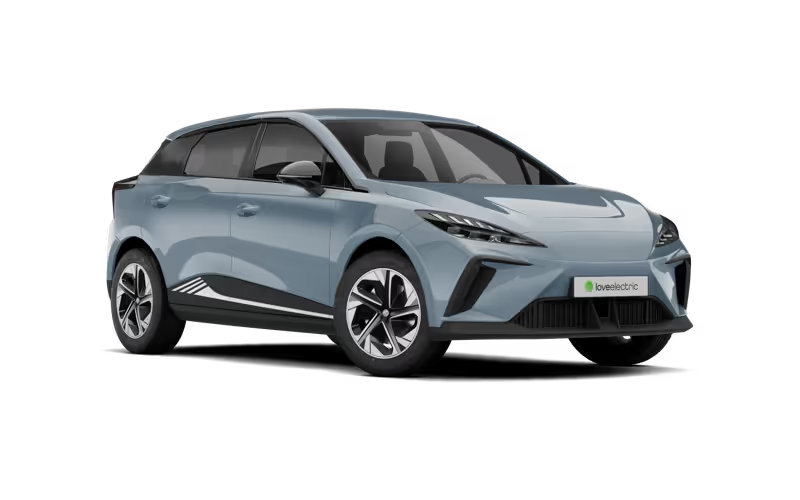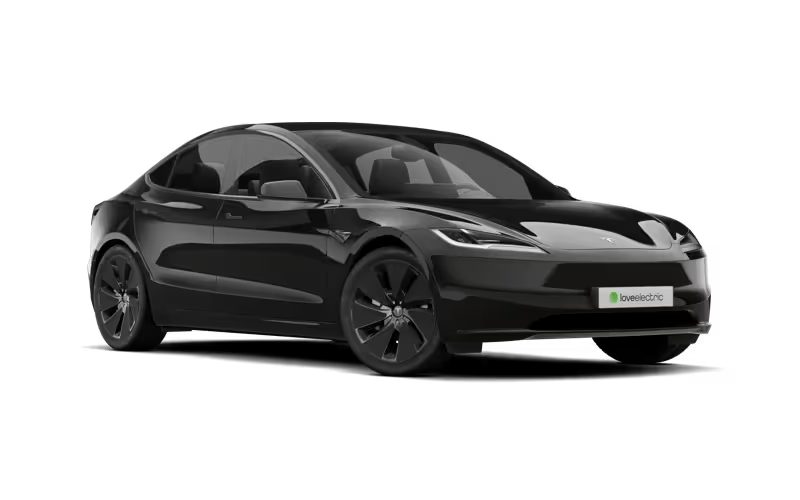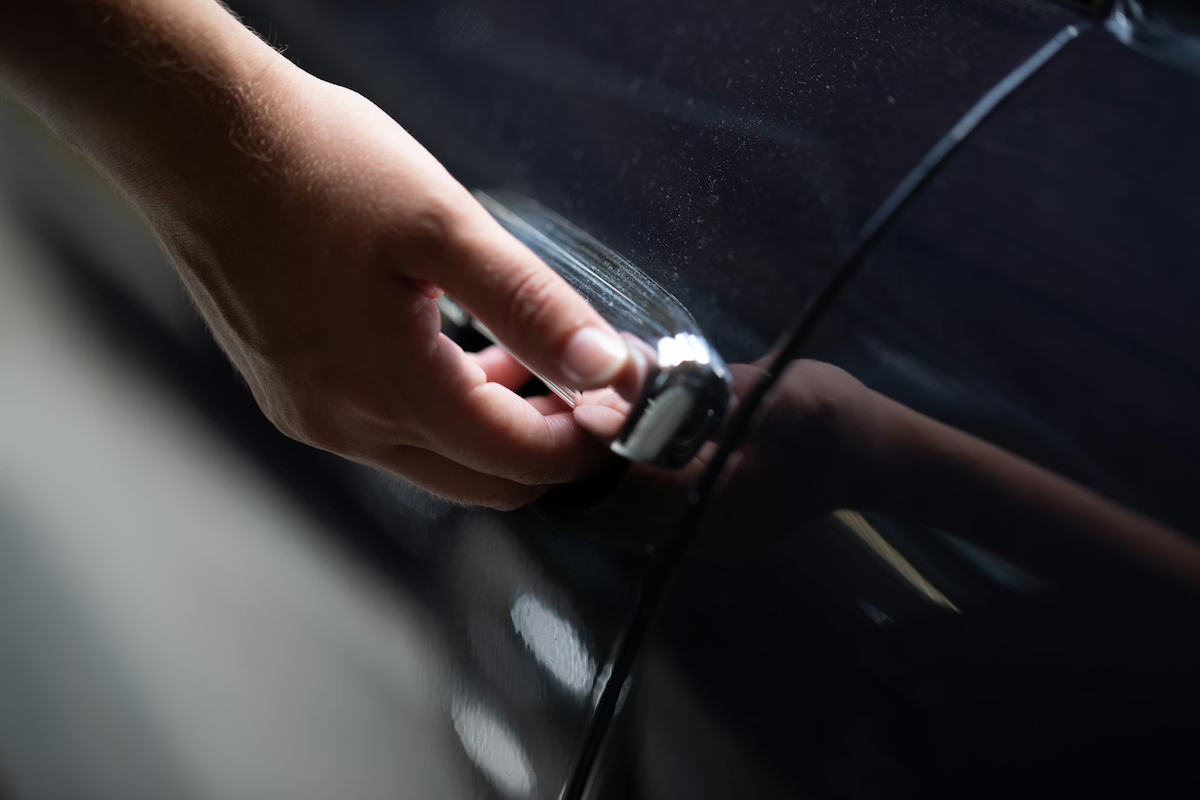Charging an EV can cost as little as the price of a coffee or as much as a tank of petrol. It just depends where you plug in…and when.
This guide lays out the real costs of charging in the UK, how they compare to petrol and diesel, and the tricks that keep your running costs at the lower end.
How much is it to charge an electric car at home in the UK?
Home charging costs between £10-£18 for a full charge on standard tariffs, or just £3-£6 using off-peak EV-specific tariffs.
For most drivers, home charging is by far the cheapest way to run an EV. But your costs depend on two things: your electricity tariff and the size of your car’s battery.
On a standard household tariff, electricity currently costs around 25.73p per kWh (the 2025 price cap). That means fully charging a typical 60kWh EV battery costs about £15.44. Smaller cars with a 40kWh battery cost closer to £10, while larger EVs with 75kWh+ batteries can push the cost above £18.
Switch to an EV-friendly off-peak tariff, and the savings are dramatic. Some suppliers, like Octopus and OVO, offer overnight rates from just 7p per kWh. Charging the same 60kWh battery overnight would then cost just £4.20 — a saving of over 70%.
So what’s the difference between the tariffs?
- Standard tariff: You pay the same rate 24/7, no matter when you plug in.
- EV off-peak tariff: You pay a much lower rate during certain hours (usually late at night), and a slightly higher rate during the day. Smart chargers can schedule charging automatically during the cheapest window.
Because most EV drivers top up rather than charging from empty to full, real-world costs are often lower than the figures above. For many households, an overnight plug-in adds just £2–£4 to the bill.
How much does public EV charging cost in the UK?
Public charging is where costs really jump compared to charging at home. On average, you’ll pay around 51p per kWh for slow or fast chargers, and about 76p per kWh for rapid or ultra-rapid charging.
That’s roughly 15p per mile for slower charging or 23p per mile if you’re using rapid networks.
For a typical 60kWh EV:
- Charging at home on a smart off-peak tariff: about £4–£6
- Charging the same car on a rapid public charger: closer to £45
That’s a difference big enough to feel like petrol prices all over again.
Costs also vary depending on where you plug in:
- Motorway service stations – usually the most expensive, around 70–85p/kWh
- Supermarket chargers – mid-range, typically 50–65p/kWh
- Destination chargers (hotels, gyms, car parks) – cheaper, around 45–55p/kWh
- Workplace chargers – often subsidised or free if your employer provides them
If you rely on public charging, the loveelectric Charge Card helps take the sting out. It works across multiple networks with one account, often unlocking better pricing than pay-as-you-go and sparing you from juggling half a dozen different apps. It saves EV drivers up to 60% on EV Charging.
The cost of charging an electric car vs petrol and diesel
One of the biggest selling points of EVs is how much cheaper they are to run compared to petrol and diesel cars, especially if you can charge at home.
Here’s what 100 miles of driving looks like across fuel types:
The difference is stark. Charging at home on an off-peak tariff could save you £700–£1,200 per year compared to running a petrol car. Even on a standard electricity rate, EVs typically cost half as much per mile as petrol.
Another bonus: EV running costs are more predictable. Petrol and diesel fluctuate week to week, while electricity prices move more gradually under Ofgem’s regulated price cap. That means no nasty surprises every time you drive past a forecourt.
How much does it cost to charge different electric cars?
Not all EVs cost the same to charge. The size of the battery and the car’s efficiency make a huge difference, which is why topping up a compact hatchback can cost a fraction of what you’ll pay for a large SUV. Here’s how the numbers break down for popular EV types:
Small EVs (30–45kWh batteries)

Think compact models like the Nissan Leaf (40kWh) or MG4 SE (51kWh).
- Home charging (off-peak): £2.10–£3.15 per full charge
- Home charging (standard): £7.72–£11.58
- Public rapid charging: £22.80–£34.20
Family EVs (55–70kWh batteries)

Mid-size cars like the Tesla Model 3 (60kWh) or Volkswagen ID.4 (77kWh).
- Home charging (off-peak): £3.85–£4.90
- Home charging (standard): £14.15–£18.01
- Public rapid charging: £41.80–£53.20
Premium EVs (75–100kWh+ batteries)

High-end models such as the BMW iX (76.6kWh) or Mercedes EQS (107.8kWh).
- Home charging (off-peak): £5.25–£7.00+
- Home charging (standard): £19.30–£25.73+
- Public rapid charging: £57.00–£76.00+
Efficiency plays a big role too. Sleeker EVs can manage over 4 miles per kWh, while heavier models may only achieve 2.5–3 miles per kWh. That gap quickly adds up in running costs, which is why smaller, more aerodynamic cars remain the cheapest to keep on the road.
Looking for an affordable way to drive one of these? Explore our range of EVs available through salary sacrifice.
What affects the cost of charging an EV?
The price you’ll pay to charge your car isn’t fixed. It depends on a mix of your vehicle, your setup, and even how you drive. Some factors you can control, others less so.
Battery size: The bigger the battery, the more it costs to fill.
A 40kWh pack comes in at around £10 on a standard tariff, while a 75kWh pack is closer to £19. The trade-off is that larger batteries usually deliver more range, so you don’t need to plug in as often.
This isn’t something you can change once you’ve picked your car, but it’s worth factoring in when deciding which EV to buy.
Charging speed: Slower charging at home (3–7kW) is the cheapest way to power up.
Ultra-rapid public chargers (150kW+) get you back on the road in minutes, but the convenience comes with a higher per-kWh price.
This is something you have control over, because you choose whether to top up at home overnight or pay extra for speed at a motorway stop.
Energy tariff: Your electricity tariff makes the single biggest difference to charging costs:
- Standard variable tariffs: around 25.73p per kWh (price cap rate)
- Off-peak EV tariffs: as low as 7p per kWh during overnight hours
- Smart tariffs: adjust pricing automatically based on grid demand and renewable energy supply
This is also in your control. Switching to an EV-specific or off-peak tariff can cut home charging costs by more than 70%.
Thinking about the bigger picture? Choosing the right car through an EV salary sacrifice scheme can lower your monthly costs even further, not just on charging, but on the car itself. Learn how EV salary sacrifice works.
Driving efficiency: How efficiently you drive affects how often you need to charge.
Smooth acceleration and steady speeds stretch each kWh further, while cold weather, motorway journeys, and heavy loads drain batteries faster.
Regular maintenance, like checking tyre pressure, also helps keep running costs down. This is firmly in your control—driving style alone can make a noticeable difference to how much you spend each month.
Tips to lower your EV charging costs
Running an EV doesn’t have to mean big electricity bills. With a few smart strategies, you can keep your annual charging costs comfortably low without giving up convenience.
Install a dedicated home charger
Using a three-pin plug might work in a pinch, but a dedicated home charger is faster, safer, and cheaper in the long run.
Installation usually costs between £800–£1,500, though OZEV grants can cover up to £350 for eligible flat owners, tenants, and landlords.
A dedicated unit also unlocks smart features, like scheduling charging overnight, so you automatically benefit from the cheapest electricity rates.
Want a full breakdown? Read our guide on EV charger installation costs in the UK.
Switch to an EV-friendly tariff
This is where the biggest savings happen. Specialist EV tariffs drop rates to as little as 7p per kWh overnight (11:30pm–5:30am), cutting charging costs by more than half compared to the standard 25p/kWh.
Smart chargers handle the scheduling for you, so you don’t need to stay up late plugging in. Here are some of the most popular UK options in 2025:
- OVO Charge Anytime – 7p per kWh, any time of day, as long as your car is plugged in and ready for smart scheduling.
- Octopus Intelligent Go – 7.5p per kWh between 11:30pm and 5:30am, with smart scheduling through their app.
- British Gas EV tariff – 7.9p per kWh overnight, paired with smart meter compatibility.
These tariffs can bring the cost of a full charge for a 60kWh EV down to just £4–£5, compared to £15 on standard rates.
Use workplace charging when possible
Many employers now offer free or heavily subsidised charging as an employee benefit. That can wipe out commuting fuel costs completely or, at the very least, give you a cheaper option than public networks. In fact, free workplace charging can save £800-£1,500 annually compared to petrol commuting costs.
If your workplace doesn’t have chargers yet, it’s worth asking—schemes like salary sacrifice often make it easier for companies to set them up.
Save with the Charge Card
Public charging is usually the most expensive way to top up an EV, but with the loveelectric Charge Card you don’t have to pay full price. The card gives you up to 60% savings on both public and home charging, with one simple virtual card you can use across the UK. No juggling multiple apps or memberships — just tap and go.
Because it’s offered through salary sacrifice, your charging spend is taken from your gross salary before tax and National Insurance, so you save twice: once on the energy price itself, and again through the tax advantages of salary sacrifice.
The charge card makes charging more predictable and affordable for longer journeys, while our employee reimbursement guide helps businesses ensure fair cost coverage for staff.
Plan public charging smartly
If you need to charge away from home, picking the right spot makes a big difference.
Supermarket or destination chargers often cost 20–30% less than motorway rapid stations, so it pays to plan stops around errands or longer breaks.
Use the best EV charging apps to find competitive pricing and avoid peak charging periods where possible. Many charging networks charge premium rates during busy times, while apps show real-time pricing and availability to help you select the most cost-effective options.
Drive efficiently to stretch your range
Driving style is another factor you control. Smooth acceleration, steady speeds, and effective use of regenerative braking can improve efficiency by 10–20%.
In colder months, pre-condition your EV while it’s still plugged in so the cabin warms up on grid electricity instead of draining the battery—adding up to 10% more usable range in winter.
Save up to 60% on EV Charging with loveelectric's salary sacrifice scheme
Smart home charging already saves you money — but with the loveelectric Charge Card, you can cut costs even further. The card gives you up to 60% off both home and public charging, so you stay in control of running costs whether you’re topping up on the road or charging overnight at home.
Here's how the Charge Card works: As an employee, you sacrifice the right amount from your salary based on your mileage and charging habits. You then receive a virtual Visa card that works seamlessly with your phone's virtual wallet at any UK charger, as well as with home energy suppliers for those charging at home.
And you don’t need to already be a loveelectric client. The Charge Card plugs into any existing EV salary sacrifice scheme or company car setup — as long as it’s electric.
Ready to maximize your EV charging savings? Learn more about the loveelectric Charge Card, check your eligibility, refer your company, or watch our 3-minute explainer to see the real-world impact on charging costs.






